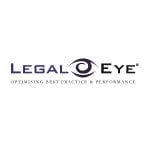The publication this week of the Law Commission’s report into the Anti-Money Laundering (AML) requirements for the reporting of suspicious activity has prompted firms to return the perennial question of who should be responsible for reporting?
It’s been a long-held theory that the quality and quantity of SARs reporting might improve if it was the corporate entity and not the MLRO that was responsible for making a report. As Money Laundering Reporting Officers carry personal liability for the criminal offence of failing to disclose it’s perhaps understandable if MLROs choose to cover their backs and report – even where a report might be a marginal call. Better safe than sorry.
Interestingly though only 43% of respondents to the consultation were in favour of a new offence whereby a commercial organisation would be criminally liable for their employees’ or associates’ failure to report suspicions of money laundering, and 19 (51%) were opposed.
The Commission has decided that in view of the responses received, and the work ongoing by other parts of Government following the MOJ consultation, it would not recommend any changes at this time. So it’s hard not to see the report as a damp squib published during an even damper month.
Key recommendations include:
- The creation of an Advisory Board created to oversee drafting of guidance and to measure effectiveness of the regime, and ways to improve it
- Retention of the consent regime, with overwhelming support from respondents for this course
- Providing clearer guidance on key statutory concepts including suspicion, consent, reasonable excuse and ringfencing
- Prescribing the form of a SAR with better use of technology to help reporters make more effective disclosures
- All crimes approach to be preserved
- Amendment to POCA to create an exemption to allow criminal property to be ring-fenced.
With a focus on improving the consent regime for suspicious activity reports (SARs), this report is the result of a year-long project commissioned by the Home Office, which asked the Law Commission to analyse and address issues with the consent regime, and to make recommendations to improve the prevention, detection and prosecution of money laundering in the UK. The review has focused on Part 7 of the Proceeds of Crime Act 2002 (POCA) and in particular, on those provisions dealing with a failure to report suspicions of money laundering and terrorist financing.
It remains to be seen whether the changes will lead to an improvement in the quality of SARs and affect the number of reports being made.
This article was submitted to be published by Legal Eye as part of their advertising agreement with Today’s Conveyancer. The views expressed in this article are those of the submitter and not those of Today’s Conveyancer.




















